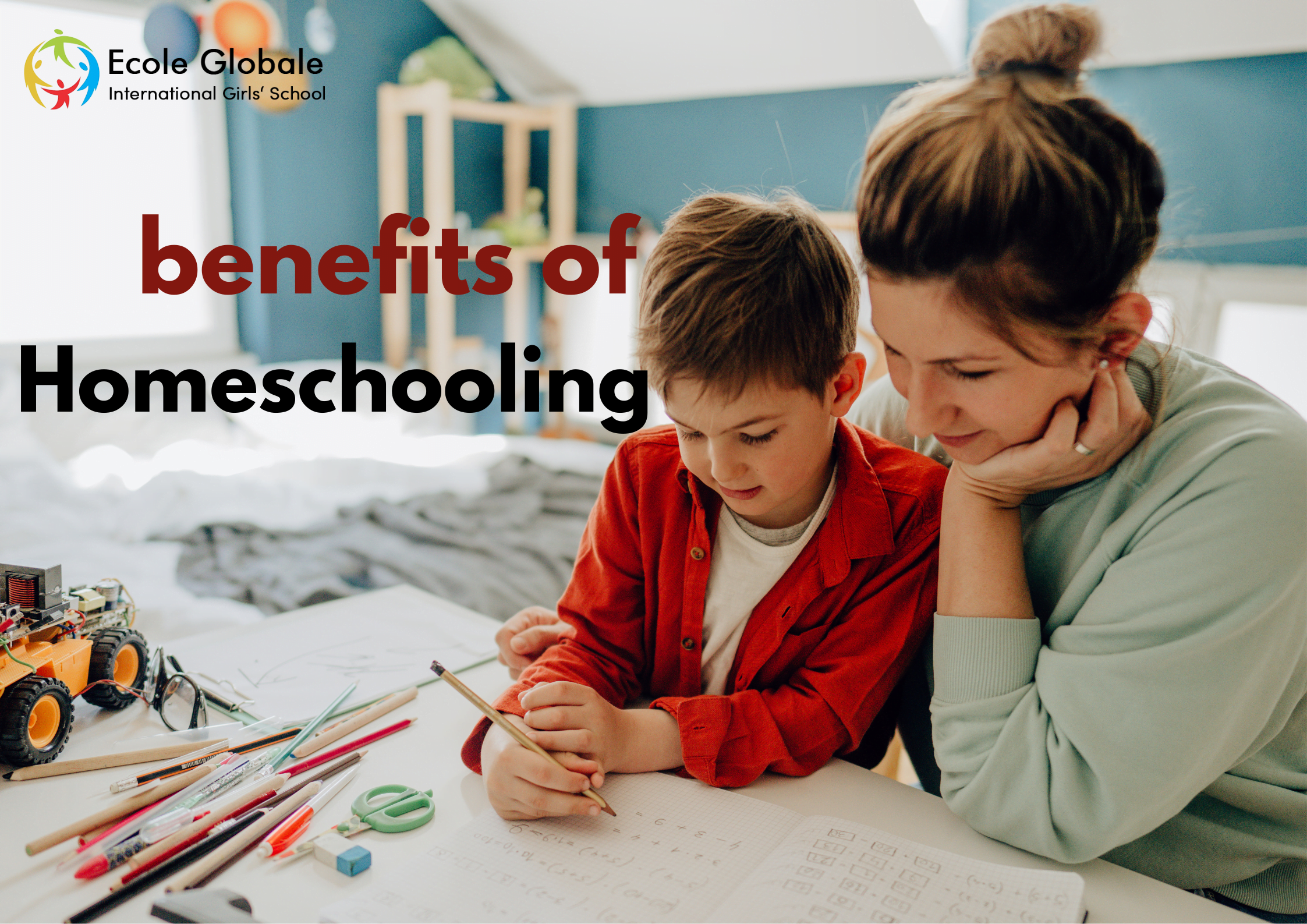Homeschooling is a program of education for persons under compulsory school age; during the regular school year, parents educate at home rather than in a government, religious or private school.
One may use the term to describe an approach to education, opposing a specific type of schooling.
Ever thought about homeschooling? Maybe you have a kid; you’re wondering if it’s for them. Perhaps, you don’t have kids, but you think it might be a good idea for some. Or you just interested in homeschooling and don’t have children of your own. The benefits are many, and I’ll discuss some of them in the following paragraphs.
It Saves Money.
Homeschoolers typically don’t have to buy uniforms. But they may have to pay for supplies. Some states also require homeschooled students to take standardised tests, which cost money.
Homeschooling also allows you to customise your child’s education. If your child struggles in one subject, you can focus on that area by hiring tutors or enrolling them in after-school programs.
Homeschooling gives freedom to explore different learning styles and types of the curriculum until you find something that works best for your child.
You can also spend less time driving back and forth from school.
Homeschooled Students Score Higher On Achievement Tests.
Homeschooled students score higher on achievement tests than students who attend public or private schools. In addition, homeschooled students are less likely to drop out of high school or fail courses than their peers. But what’s the reason for this?
Experts claim it’s because students have more freedom in their learning environment—they can take classes at their own pace and choose what they want to study. Others say it’s because homeschooled children have fewer distractions from peers or teachers who aren’t focused on their education as much as parents would be at home.
It appears that homeschooled students score higher on achievement tests than those who attend traditional schools!
Your Child Will Never Be Bullied.
Bullying is a daunting problem; many parents take their kids out of school to protect them from it.
Homeschooled children have more opportunities to make friends with people who are different from them than children who attend traditional schools. They learn to interact with people who don’t look like them or share their interests and develop skills like empathy and tolerance. These skills make them less likely to bully others or be bullied themselves—and make them better able to cope with any bullying that does occur.
No More Scheduling Conflicts!
When you homeschool kids, you never have to worry about scheduling conflicts. When you go to work, your kids are getting a full day of schooling in the comfort of their own homes. They don’t have to worry about missing class because they’re sick or have other commitments during the day. And if they have a test or project due, they can take care of it on their own time without having to wait until after school hours are over or miss any classes at all!
Personalised Instruction
Homeschooling can be a good choice for parents who want to give their children a more individualised education and for those who provide their children with a different environment than what is available in public schools.
Homeschooling may also be the better choice for parents who don’t want their children to be around other students and teachers with whom they may not get along or who are not a good fit for their child’s needs. Homeschooling allows parents to control what their child learns, which can be especially important if any learning disabilities one needs to address to ensure academic success.
Choice Of Curriculum
You may choose from various curricula, from traditional to nontraditional education.
If something interests them, or if they want to learn more about a subject, then you will be able to teach them at home instead of waiting until they get older and then taking them out of school so they can learn it there.
Traditional education consists of teaching students in groups using textbooks, workbooks and other supplemental materials.
Nontraditional education encompasses more than just homeschooling. It also refers to self-paced learning and alternative educational programs such as Montessori schools.
Homeschooling offers many benefits for parents and their children.
Customised schedule
Homeschooling allows students to take a more flexible approach to their learning and gives them the freedom to pursue their interests outside the classroom.
Homeschooling also provides children with a safe environment to explore and grow as individuals. There are no social pressures at home, so children can focus on learning instead of worrying about what their friends are doing or what others think about them.
By homeschooling your child, you will effectively monitor their progress. You will know what they’re studying and how well they’re doing—meaning there won’t be any surprises when it comes time for standardised testing!
Conclusion
Homeschooling is not just a great option. Sometimes it is the best option.
Above all, there is a multitude of reasons why parents choose to homeschool their children. Each family has their own unique set of beliefs. Some want to teach more openly than is possible in a traditional classroom setting. Others do not want their child’s education influenced by the opinions of others. With the right mindset and support, a homeschooling parent can provide a rich learning environment that helps a child succeed academically, socially, emotionally, and spiritually.
While each family has a say in whether or not they choose to homeschool their children, the benefits of this educational choice make it clear why many families find homeschooling the best option for teaching their children at home.









